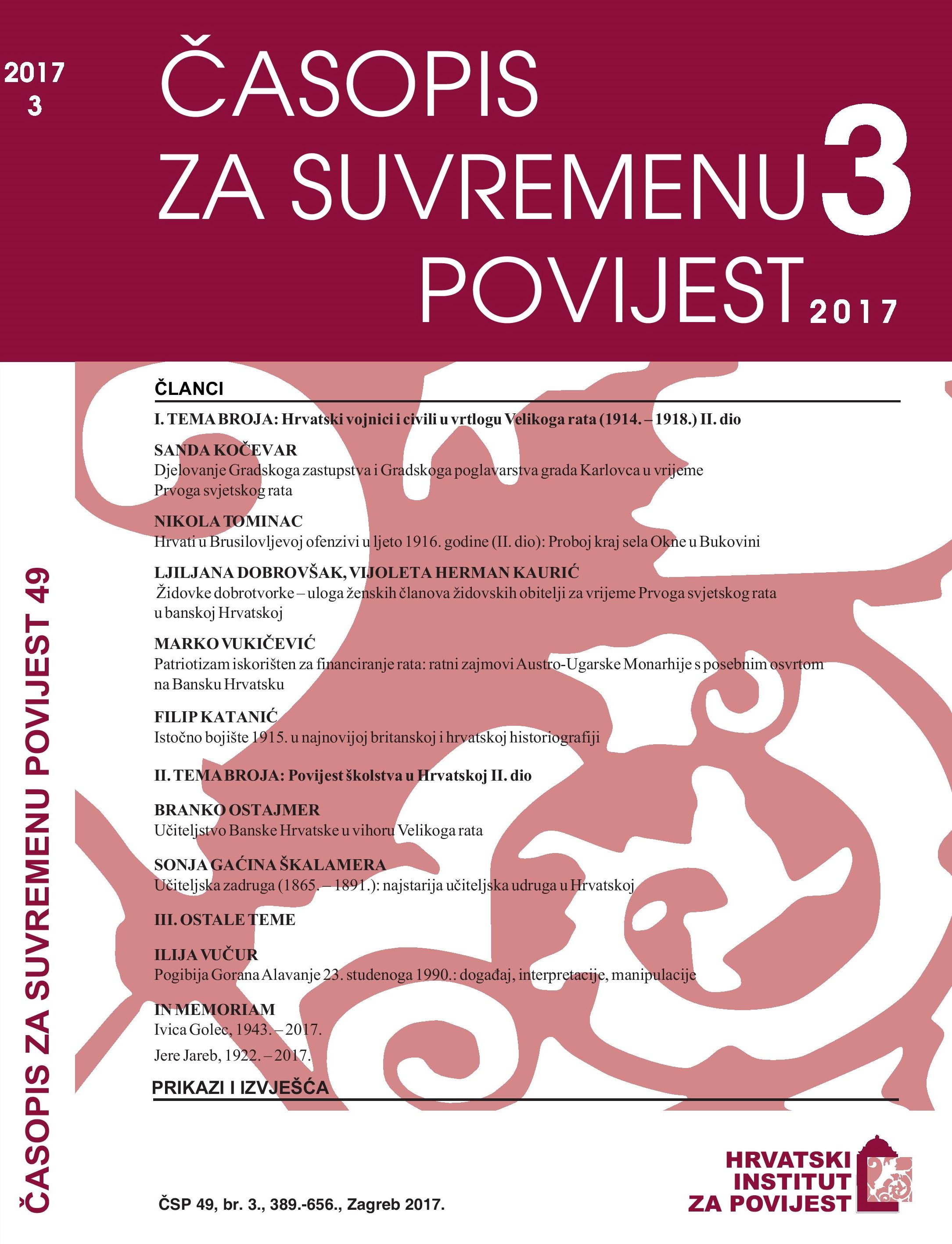Pogibija Gorana Alavanje 23. studenoga 1990.: događaj, interpretacije, manipulacije
The Death of Goran Alavanja on 23 November 1990: Events, Interpretations, Manipulations
Author(s): Ilija VučurSubject(s): History, Military history, Transformation Period (1990 - 2010), Post-Communist Transformation
Published by: Hrvatski institut za povijest
Keywords: Croatia; Croatian War of Independence; Serb Rebellion; 1990; Goran Alavanja;
Summary/Abstract: Soon after the multiparty elections held in Croatia in mid-1990, Goran Alavanja, a policeman of Serbian nationality, used the opportunity to change his duty station from Biograd na Moru to Benkovac. His transfer was motivated by political reasons and a lack of trust in the new Croatian government, and fit into the process of national homogenisation of Serbs in Croatia from the beginning of 1989.After the outbreak of Serbian armed rebellion in northern Dalmatia, Alavanja showed no indication of loyalty towards the Croatian authorities but, like the majority of policemen of Serbian nationality, acted passively towards the rebellion, which is how the rebels expected the police in that area to react.Such a stance was a hard blow for the Croatian authorities, who were deprived of their basic element for suppressing the rebellion and restoring order. Goran Alavanja’s personal stance towards the Croatian authorities and the rebellion of the Serbian population is most readily apparent by his signing of the “Open Letter of the Policemen of the Secretariat of Internal Affairs Zadar”, whose illegal demands Alavanja thus publically supported. The letter was also signed by his colleagues from the attacked patrol as well as most of the policemen of Serbian nationality from the Benkovac Police Station. It is also apparent that the Benkovac Police Station sided with the position of the Serbian majority, and that the Zadar Police Department had only formal, and not operative, authority over it.Based on ample documentation, it has been determined that Alavanja was given the status of a soldier killed in action by the rebel Serb authorities, and his name appears on all relevant lists of fallen soldiers from the Krajina in this capacity. The deceased’s family received all the rights derived from this status, as determined by the rebel authorities and applicable to all fallen members of armed units from the Krajina. The formal status of the deceased Goran Alavanja in the Republic of Croatia was first set down by Josip Boljkovac, the Minister of Internal Affairs, who mentioned it in his address to the members of the Croatian Parliament after Alavanja’s death. Boljkovac’s claim that the policeman had been loyal to the Croatian authorities had a political purpose and didn’t fit the facts, which were certainly known to him as Minister of Internal Affairs. The loyalty of Officer Alavanja also serves as an example of the complexity of the political-security situation faced by the Croatian authorities in their efforts to suppress the rebellion, i.e. to restore order in the area affected by the rebellion.After the death of Officer Alavanja, there were politically motivated attempts to transfer responsibility for the murder between the conflicting parties, even though it was already obvious that the murder had been committed by the rebels in order to spread the rebellion. This work offers a series of indications that point towards the rebel “Council of National Resistance” being the organiser, and the renegade group led by Simo Dubajić the perpetrator of the murder of Goran Alavanja.The post-war media and political-administrative manipulations of the Goran Alavanja case are a vivid example of an attempt to warp the historical truth for daily political or ideological reasons. This article shows why Josip Jović should continue to be honoured as the first Croatian soldier who gave his life for his country.
Journal: Časopis za suvremenu povijest
- Issue Year: 49/2017
- Issue No: 3
- Page Range: 587-609
- Page Count: 23
- Language: English, Croatian

